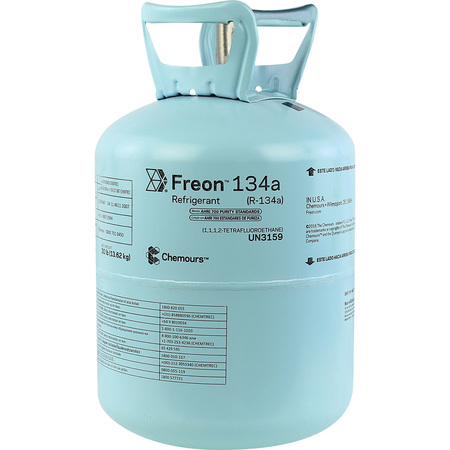How to Determine If Your Air Conditioner Needs Freon
How to Determine If Your Air Conditioner Needs Freon
Welcome to our comprehensive guide on how to determine if your air conditioner needs a refill of Freon. As the summer heat intensifies, it’s crucial to ensure that your AC unit is functioning optimally to keep your indoor environment cool and comfortable. Freon, also known as refrigerant, plays a vital role in the cooling process of your air conditioner. However, over time, your AC may experience issues that require a Freon recharge.
In this article, we will provide you with practical insights and tips to help you assess whether your air conditioner is in need of a Freon refill. We will explain the signs and symptoms that indicate a potential Freon deficiency, empowering you to take appropriate action to maintain the efficiency and performance of your AC unit.
| Table of Contents |
|---|
| Signs Your AC Needs Freon |
| Diagnosing Freon Deficiency |
| Solutions for Freon Recharge |
Before we delve into the details, it’s important to note that working with refrigerants can be hazardous if not handled properly. If you are unsure or uncomfortable with the process, it is recommended to seek professional assistance. Safety should always be a top priority when dealing with any HVAC-related tasks.

Now, let’s explore the telltale signs that indicate your air conditioner may require a refill of Freon.
Signs Your AC Needs Freon
If you suspect that your air conditioner is running low on Freon, there are several signs and symptoms you can look out for. While it’s always best to consult a professional for an accurate diagnosis, here are some common indicators that your AC may need a Freon recharge:
1. Insufficient Cooling
- If you notice that your air conditioner is not cooling your space as effectively as it used to, it could be a sign of low Freon levels. Freon is responsible for absorbing heat from the air, so a decrease in its quantity can result in reduced cooling capacity.
- Pay attention to any noticeable temperature differences or if your AC is struggling to reach the desired temperature despite running for extended periods.
2. Poor Airflow
- Another indication of a potential Freon deficiency is reduced airflow from your air conditioner’s vents. If you notice weak or minimal airflow, it could be due to inadequate levels of refrigerant.
- Keep an eye out for weak air circulation or if certain areas of your space receive significantly less airflow than others.
3. Ice Buildup
- If you observe ice forming on the evaporator coils of your air conditioner, it could be a clear sign of low Freon levels. Inadequate refrigerant can cause the coils to freeze up, hindering the cooling process.
- Check the evaporator coils regularly for any frost or ice accumulation, and if you notice such buildup, it’s essential to address the issue promptly.
4. Strange Noises
- Unusual sounds coming from your air conditioner can indicate various issues, including a Freon deficiency. Hissing, bubbling, or gurgling noises could be a result of refrigerant leaks.
- If you hear any unfamiliar sounds while your AC is running, it’s advisable to have it inspected by a professional to identify the root cause.
5. Increased Energy Bills
- A sudden spike in your energy bills without a corresponding increase in usage can be a red flag for an inefficient air conditioner. Low Freon levels can cause your AC to work harder and consume more energy to achieve the desired cooling.
- If you notice a significant and unexplained rise in your energy costs, it’s worth investigating whether your air conditioner requires a Freon recharge.
Diagnosing Freon Deficiency
While the signs mentioned above can indicate a potential Freon deficiency, it’s important to note that they are not definitive proof. To accurately diagnose the need for a Freon recharge, it’s best to consult a qualified HVAC technician. They have the expertise and tools to assess your air conditioner’s refrigerant levels and identify any leaks or other issues.
Attempting to diagnose and fix refrigerant-related problems yourself can be dangerous and may lead to further damage to your AC unit. It’s always recommended to leave such tasks to professionals who can ensure the safety and proper functioning of your air conditioner.
Solutions for Freon Recharge
If your air conditioner is indeed low on Freon, a professional HVAC technician can perform a Freon recharge to restore optimal levels. The process typically involves the following steps:
- Leak Detection: The technician will inspect your AC system for any refrigerant leaks using specialized tools. Identifying and fixing leaks is crucial to prevent future Freon deficiencies.
- Recovery: If necessary, the technician will recover any remaining Freon from the system to ensure a clean recharge.
- Recharge: The technician will add the appropriate amount of Freon to your air conditioner, following manufacturer guidelines and specifications.
- Testing: Once the recharge is complete, the technician will test your AC system to ensure it is functioning properly and cooling effectively.
Remember, refrigerants like Freon should only be handled by trained professionals due to their potential environmental and health hazards. It’s crucial to prioritize safety and rely on experts to perform any necessary maintenance or repairs on your air conditioner.
Conclusion
Knowing when your air conditioner needs a Freon recharge is essential for maintaining its efficiency and performance. Keep an eye out for signs such as insufficient cooling, poor airflow, ice buildup, strange noises, and increased energy bills. However, always consult a professional HVAC technician to accurately diagnose and address any Freon deficiencies. Remember, safety should be your top priority, and handling refrigerants should be left to the experts.